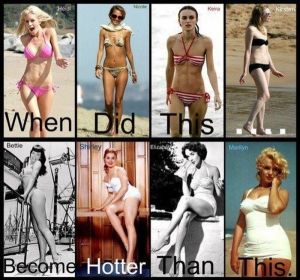Obligatory Cynical Valentine’s Day Post?
I don’t have a lot of Valentine’s Day stories. If you know me well you’ve probably heard “that one story” about going to “that one place” with “that one guy,” and we’ve shared a good laugh about my romantic misadventures.
I could write something cynical about so-called love and relationships and the over-commercialism of Valentine’s Day–something that would make my single, snarky, feminist predecessors proud. But tonight, after this morning’s skyping and coffee with friends led to conversations of love and relationships, I just don’t have the cynicism stuffing in me (yes, you may read that as an allusion to Build-a-Bear).
I’ve come to the conclusion that I basically have two settings regarding emotional expression: cynical and vulnerable. Time to get vulnerable, kids, and maybe some other conflicted 20-something singleton feminists will be able to relate.
In case you hadn’t guessed already, I’m not a romantic. I don’t mean this in literary terms, regarding the works of Keats, Byron, and Barbauld. I don’t fall in love easily and I am not generally drawn to “love poems.” But this week, after finishing Isabel Allende’s novel The House of the Spirits, I assigned my world literature students the task of finding their favorite Pablo Neruda love sonnet and bringing it to class for discussion. After all, he very well may be The Poet.
Singletons, maybe, like me, you’ve felt like truly enjoying and–what’s the word?–accepting your singleness means that you can’t or shouldn’t desire to be the subject of a love sonnet. And I now that I’ve read quite a few I’ve gotta ask: why the hell not? As I read a smattering of Neruda’s love-verse in preparation for Wednesday, I found myself thinking how nice it would be to inspire, by my absence, “the saddest lines” of shivering stars, or for someone to desire my skin so much that he would devour it like an almond, or love me “without knowing how, or when, or from where.”
Listen, I’m not saying I all of the sudden agree with my parents that The Notebook is a great book, and just so we’re clear Love Actually in all its British dysfunction is, unsurprisingly, still my favorite romantic comedy. I still think a dozen red roses, though beautiful, has become a cliche, and that it’s stupid how people go all out on one day of the year to show that they love another person when they could show love in simple ways every single day and have that mean just as much or more than expensive flowers and dinner at the Melting Pot.
But I’m also not saying, “Suck it, Valentine’s Day; there’s no such thing as love.” In the spirit of vulnerability, let me confess that yes, I like being single, I like the freedom to go out with who I want when I want, to do what I want without having to worry about working around a partner’s schedule. And I also think it is possible to love passionately and unconditionally. So, while it’s the trendy thing for single folks to dub Valentine’s Day “Singles’ Awareness Day,” and to have parties with booze and bitching about how we don’t need a man or woman, let’s not discount the fact that many people want their significant other. They desire them like almonds and sleep wrapped in each others’ arms, and that’s a good and beautiful part of life–something it’s okay to desire, not just because Valentine’s Day adverts imply that we’re disgusting people without it, but because it’s something that can bring happiness not contingent upon the availability of Russel Stover’s nut special. I’m not looking for a Valentine’s Day date. I’m not even looking to change my life right now. But I would at some point like to be loved “as one loves certain obscure things, secretly, between the shadow and the soul.” And there’s nothing wrong with that.
